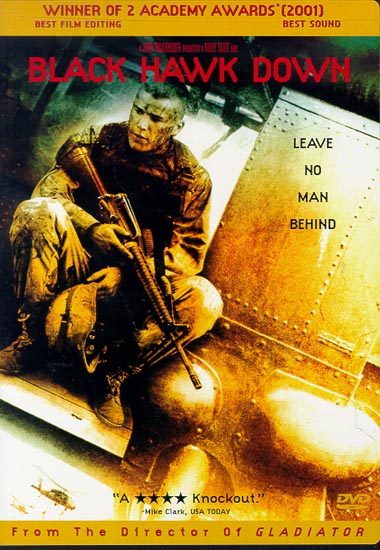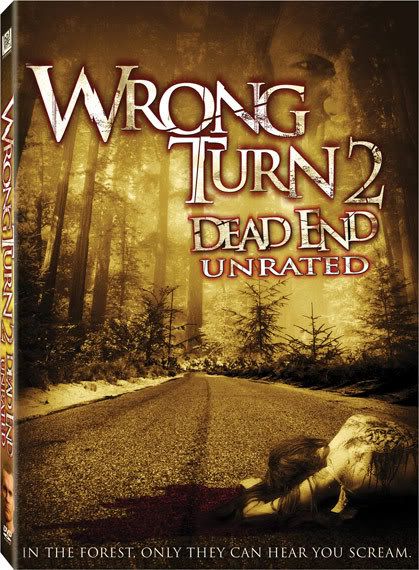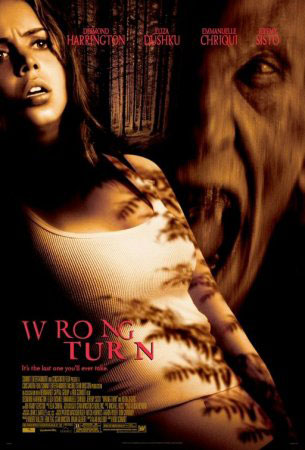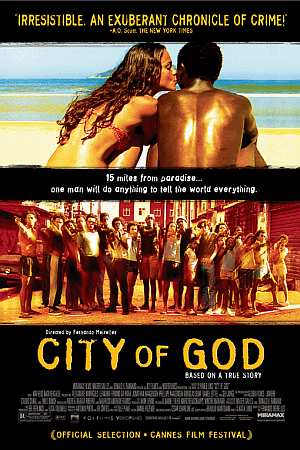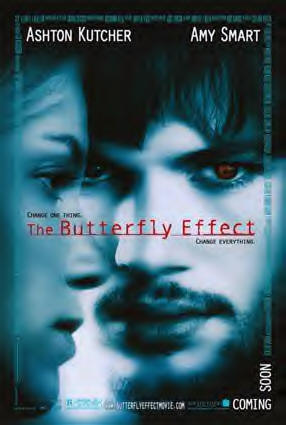
GANGS OF NEW YORK,'' Martin Scorsese's brutal, flawed and indelible epic of 19th-century urban criminality, begins in a mud-walled, torchlighted cavern, where a group of warriors prepare for battle, arming themselves with clubs and blades and armoring themselves in motley leather and cloth. Though this is Lower Manhattan in 1846, it might as well be the Middle Ages or the time of Gilgamesh: these warlike rituals have an archaic, archetypal feeling.
And the participants are aware of this. As the members of various colorfully named Irish gangs emerge into the winter daylight of Paradise Square (a place long since given over to high-rises and resurrected here on the grounds of the vast Cinecittà studio complex in Rome), their native-born Protestant enemies greet them with an invocation of ''the ancient laws of combat.'' The ensuing melee turns the new-fallen snow pink with blood and claims the life of Priest Vallon (Liam Neeson), an Irish gang chieftain whose young son witnesses the carnage.
Sixteen years later, the boy, whose name is Amsterdam, has grown into Leonardo DiCaprio, his wide, implacable face framed by lank hair and a wispy Van Dyke. He returns from a long stint in the Hell Gate Reformatory to his old neighborhood, the Five Points, and finds it ruled by his father's killer, Bill Cutting (Daniel Day-Lewis), known as the Butcher, a swaggering monster who has turned the anniversary of Priest's death into a local holiday.
Like a figure out of Jacobean theater or a Dumas novel, Amsterdam is consumed by the need for revenge. With the help of a boyhood friend (Henry Thomas), he infiltrates the Butcher's inner circle, becoming a surrogate son to the man who assassinated his father and who now, in accordance with those ancient laws, venerates Priest's memory.
The New York evoked in Amsterdam's voice-over is ''a city full of tribes and war chiefs,'' whose streets are far meaner than any Mr. Scorsese has contemplated before. The Butcher has formed an alliance of convenience with Boss Tweed (Jim Broadbent), the kingpin of Tammany Hall, and together they administer an empire of graft, extortion and larceny that would put any 20th-century movie gangster or political boss to shame. Rival fire companies turn burning buildings into sites of rioting and plunder; crowds gather to witness hangings, bare-knuckled boxing contests and displays of knife throwing.
As new immigrants, from Ireland and elsewhere, pour off the ships in New York harbor, they are mustered into Tweed's Democratic Party and then, since they lack the $300 necessary to buy their way out, into the Union Army. Occasionally a detachment of reform-minded swells will tour the Points, availing themselves of the perennial privileges of squeamish titillation and easy moral superiority. This anarchic inferno is, in Amsterdam's words, not so much a city as ''a cauldron in which a great city might be forged.''
And in recreating it, Mr. Scorsese has made a near-great movie. His interest in violence, both random and organized, is matched by his love of street-level spectacle. His Old New York is a gaudy multiethnic carnival of misrule, music and impromptu theater, a Breughel painting come to life. Though the details of this lawless, teeming, vibrant milieu may be unfamiliar, we nonetheless instinctively recognize it, from the 19th-century novels of Dickens and Zola, from samurai movies and American westerns and from some of this director's previous films.
Most notably in ''Mean Streets, ''Goodfellas,'' ''The Age of Innocence'' and ''Casino,'' Mr. Scorsese has functioned as a kind of romantic visual anthropologist, fascinated by tribal lore and language, by half-acknowledged codes of honor and retribution and by the boundaries between loyalty and vengeance, between courtesy and violence, that underlie a given social order.
As in ''Casino'' and ''The Age of Innocence,'' the setting of ''Gangs'' is sometimes more interesting than the story. At 2 hours 45 minutes, the film, deftly edited by Mr. Scorsese's frequent collaborator Thelma Schoonmaker, moves swiftly and elegantly. It is never dull, but I must confess that I wish it were longer, so that the lives of the protagonists, rather than standing out in relief against a historical background, were more fully embedded within it. The quasi-Oedipal struggle between Amsterdam and Bill is meant to have a mythic resonance, but that makes it the most conventional element in the picture.
The relationship between the two men is triangulated by Jenny Everdeane (Cameron Diaz), a flame-haired thief (and a protégée of Bill's) who catches Amsterdam's eye and steals his lucky religious medallion. But like Sharon Stone in ''Casino,'' Ms. Diaz ends up with no outlet for her spitfire energies, since her character is more a structural necessity -- the linchpin of male jealousy -- than a fully imagined person. The limitations of her role point to a more serious lapse, which is the movie's lack of curiosity about what women's lives might have been like in Old New York.
Like Tony Soprano's crew in the V.I.P. room at the Bada Bing, Bill and his minions spend a lot of time cavorting with half-naked prostitutes, which is fair (and for all I know accurate) enough. But all the glum evocation of lost fathers makes you wonder if any of these guys had mothers, and you wonder what a typical household in the Five Points might have looked like. (Though I, like just about everyone else, had been waiting impatiently for ''Gangs,'' I almost wish Mr. Scorsese and his screenwriters had been delayed long enough to take account of ''Paradise Alley,'' Kevin Baker's new novel about the draft riots of 1863, in which some of the events touched on in this movie are perceived through women's eyes.)
These objections should not detract from an appreciation of what Mr. Scorsese and his cast have done. Mr. DiCaprio and Ms. Diaz may be too pretty for the neighborhood, but one should hardly hold their being movie stars against them; they are smart, eager and intrepid actors as well. For his part Mr. Day-Lewis positively luxuriates in his character's villainy and turns Bill's flavorsome dialogue into vernacular poetry.
He understands the Shakespearean dimensions of the character and has enough art to fill them out. Surrounded by Irish brogues and deracinated British accents, Mr. Day-Lewis has the wit to speak an early version of Noo Yawkese, making the Butcher the butt of a marvelous historical joke: this bigoted, all-but-forgotten nativist, it turns out, bequeathed his speech patterns to the children of the immigrants he despised.
''Gangs of New York'' is an important film as well as an entertaining one. With this project, Mr. Scorsese has made his passionate ethnographic sensibility the vehicle of an especially grand ambition. He wants not only to reconstruct the details of life in a distant era but to construct, from the ground up, a narrative of historical change, to explain how we -- New Yorkers, Americans, modern folk who disdain hand-to-hand bloodletting and overt displays of corruption -- got from there to here, how the ancient laws gave way to modern ones.
Such an ambition is rare in American movies, and rarer still is the sense of tragedy and contradiction that Mr. Scorsese brings to his saga. There is very little in the history of American cinema to prepare us for the version of American history Mr. Scorsese presents here. It is not the usual triumphalist story of moral progress and enlightenment, but rather a blood-soaked revenger's tale, in which the modern world arrives in the form of a line of soldiers firing into a crowd.
The director's great accomplishment, the result of three decades of mulling and research inspired by Herbert Asbury's ''Gangs of New York'' -- a 1928 book nearly as legendary as the world it illuminates -- has been to bring to life not only the texture of the past but its force and velocity as well. For all its meticulously imagined costumes and sets (for which the production designer, Dante Ferretti, surely deserves an Oscar), this is no costume drama.
It is informed not by the polite antiquarianism of Merchant and Ivory but by the political ardor of someone like Luchino Visconti, one of Mr. Scorsese's heroes. ''Senso,'' Visconti's lavish 1953 melodrama set during the Italian Risorgimento (and his first color film), is one of the touchstones of ''My Voyage to Italy,'' Mr. Scorsese's fascinating, quasi-autobiographical documentary on postwar Italian cinema.
Though ''Gangs of New York'' throws in its lot with the rabble rather than the aristocracy, it shares with ''Senso'' (and also with ''The Leopard,'' Visconti's 1965 masterpiece) a feeling that the past, so full of ambiguity and complexity, of barbarism and nobility, continues to send its aftershocks into the present. It shows us a world on the brink of vanishing and manages to mourn that world without doubting the inevitability or the justice of its fate.
''America was born in the streets,'' the posters for ''Gangs'' proclaim. Later, Amsterdam Vallon, in the aftermath of the draft riots, muses that ''our great city was born in blood and tribulation.'' Nobody as steeped in film history as Mr. Scorsese could offer such a metaphor without conjuring the memory of D. W. Griffith's ''Birth of a Nation,'' and Griffith, along with John Ford and others, is one of the targets of Mr. Scorsese's revisionism.
In Griffith's film, adapted from ''The Clansman,'' a best-selling novel by Thomas Dixon, the American republic was reborn after Reconstruction, when the native-born whites of the North and South overcame their sectional differences in the name of racial supremacy. Ford's myth of American origins -- which involved the subjugation of the frontier and the equivocal replacement of antique honor by modern justice -- also typically took place after the Civil War.
In ''Gangs,'' which opens nationwide today, the pivotal event in our history is the riot that convulsed New York in July of 1863. While this emphasis places the immigrant urban working class at the center of the American story -- a fairly radical notion in itself -- the film hardly sentimentalizes the insurrection, which was both a revolt against local and federal authority and a vicious massacre of the black citizens of New York.
The rioters are seen as exploited, oppressed and destined to be cannon fodder in a war they barely understand, but they are far from heroic, and the violence of the riots makes the film's opening gang battle seem quaint and decorous. What we are witnessing is the eclipse of warlordism and the catastrophic birth of a modern society. Like the old order, the new one is riven by class resentment, racism and political hypocrisy, attributes that change their form at every stage of history but that seem to be as embedded in human nature as the capacity for decency, solidarity and courage.
This is historical filmmaking without the balm of right-thinking ideology, either liberal or conservative. Mr. Scorsese's bravery and integrity in advancing this vision can hardly be underestimated.
This movie was a long time in the making, but its life has barely begun. Now that the industry gossip about it has subsided, let us hope that a more substantial discussion can start. People who care about American history, professionally and otherwise, will no doubt weigh in on the accuracy of its particulars and the validity of its interpretation; they will also, I hope, revisit some of their own suppositions in light of its unsparing and uncompromised imagining of the past. I said earlier that ''Gangs of New York'' is nearly a great movie. I suspect that, over time, it will make up the distance.
''Gangs of New York'' is rated R (Under 17 requires accompanying parent or adult guardian). The pervasiveness of its violence makes you realize how much New York has changed in a century and a half. On the other hand, the nudity, profanity and sexual references may lead you to think that it has barely changed at all.
GANGS OF NEW YORK
Directed by Martin Scorsese; written by Jay Cocks, Steven Zaillian and Kenneth Lonergan, based on a story by Mr. Cocks; director of photography, Michael Ballhaus; edited by Thelma Schoonmaker; music by Howard Shore; production designer, Dante Ferretti; produced by Alberto Grimaldi and Harvey Weinstein; released by Miramax Films. Running time: 165 minutes. This film is rated R.
WITH: Leonardo DiCaprio (Amsterdam Vallon), Daniel Day-Lewis (Bill the Butcher), Cameron Diaz (Jenny Everdeane), Liam Neeson (Priest Vallon), Jim Broadbent (Boss Tweed), John C. Reilly (Happy Jack), Henry Thomas (Johnny) and Brendan Gleeson (Monk McGinn).














